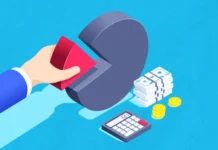The mineral water bottles we order, packaged food we buy and disposable cutlery we use are choking our planet. So let’s practice a few greener ways of living suggested here.
It’s easy to get takeaways than preparing food yourself and a way lot easier when food comes home in just a single click on your Android phones whenever you have a craving, isn’t it? I myself am a fan of this new routine. Now coming to the waste this routine generates, the question is how long can we afford it?
I see my waste bin filling up within hours these days. Around 62 million tonnes of municipal solid waste is produced every year in India. Half of this is contributed by 53 cities alone. With the introduction of online food orders, there is a sudden boom in waste production. Per order, at least 3-4 things are used for packaging since plastic boxes and wrappers are mostly used for the job.
Even though this packing material is recyclable what good does it do if it ends up in garbage boxes and finally in landfills? Recently, in many restaurants, I have seen a shift in packing material from plastic to thin aluminium containers. I wonder if it’s because of health concerns or environmental concerns. In both cases, it’s no better than plastic.
Aluminium takes more than 100 years to decompose if it ends up in landfills and which it will. If the waste production continues at this rate, in the next few years we will see waste pile up along the curbside and landfills wherever you dig.
You might be wondering if I am suggesting that everybody should stop ordering food online and stop getting takeaways. Luckily, I am not completely going there. But yes, the best option is going zero waste or reducing the amount of waste you produce. Also carrying your own containers whenever you intend to get takeaways is a great option.
There is always another option. Since the material used for packing is recyclable you can either take the cleaned containers to a recycling centre or find a scrap centre/junkyard where they collect them, segregate them and then send it to nearby recycling centres. Scrap centres are not hard to find these days.
I consider scrap dealers and rag pickers as the best environmentalists. By doing this you can save at least 30 per cent of waste from ending up in landfills.This is not only applicable to food containers but any recyclable waste you generate. Even recycling requires energy and manpower, but it’s better than incineration and landfills.
Disposable bottles
It has become a trend to buy mineral water bottles whenever food is ordered at the table. Can you imagine the amount of plastic waste this habit generates? Instead, if the water could be kept in jugs or purifiers it will be way more economical and eco-friendly.
It’s even better to carry a steel water bottle wherever you go to avoid buying packed water. If some situation compels you to buy packed water, don’t throw or crush it after use but save it and give it for recycling for it comes in PET/PETE bottles which can be recycled.
Most of the food packaging uses PP or polypropylene material for containers because of its lightweight, low cost, lower production cost and durability. This has a resin identification code 5 and its widely accepted in recycling industries.
Nowadays you can know the type of plastic material used for packing by looking at the labelling. This will help you identify if the material is recyclable. Stay away from the LDPE packaging with code 4 and the category ‘Others’ with the code 7 ( Sorry! Most of the packed chips, biscuits and chocolates come in this).This material is non-recyclable or least recycled even if possible. The Environmental Protection Agency (EPA) states that only 5 per cent of manufactured LDPE is recycled.
Disposable cutlery
Now coming to the category of disposable cups and plates, I don’t know why people still use them. These are either coated paper or plastic itself which is far from biodegradable. Liquid items like juices or hot beverages ordered online come in them.
I am not saying that only online food orders contribute to plastic wastes, but that life without plastic has become inevitable currently. Try saving the plastic waste you produce in your personal bin for a week and you will find out the amount of waste you contribute to the landfill. This is just you, now imagine the total waste produced by all the others out there.
I know going zero waste is a Herculean task but what is stopping you from trying. I myself do not lead a zero-waste life but I am in the process of reducing the plastic waste I produce which I consider a small step towards the zero-waste goal. We have the power to stop the waste from piling up in our curb by reducing the waste we produce.
Crash course
If you ever feel like considering this, you could start with some simple tips I mentioned above. Here’s listing them them here:
- – Carry your own containers, water bottles, bags when going shopping or ordering takeaways.
- – Consider buying groceries in bulk so you can collect it in your own bags or containers.
- – Try not to buy fruits which are already packed for you instead buy the unpacked ones as they are quality-wise no different.
- – Say ‘No’ to plastic bags even if the vendor insists, which happens often.
At first, people might think of you as a freak but trust me they will get accustomed soon. Try to encourage and spread this notion of waste reduction as much as you can.
Finally, it’s up to you what you choose to do. You don’t always have to be environmentalists to think and be eco-friendly. Think wise and think green.#KhabarLive







